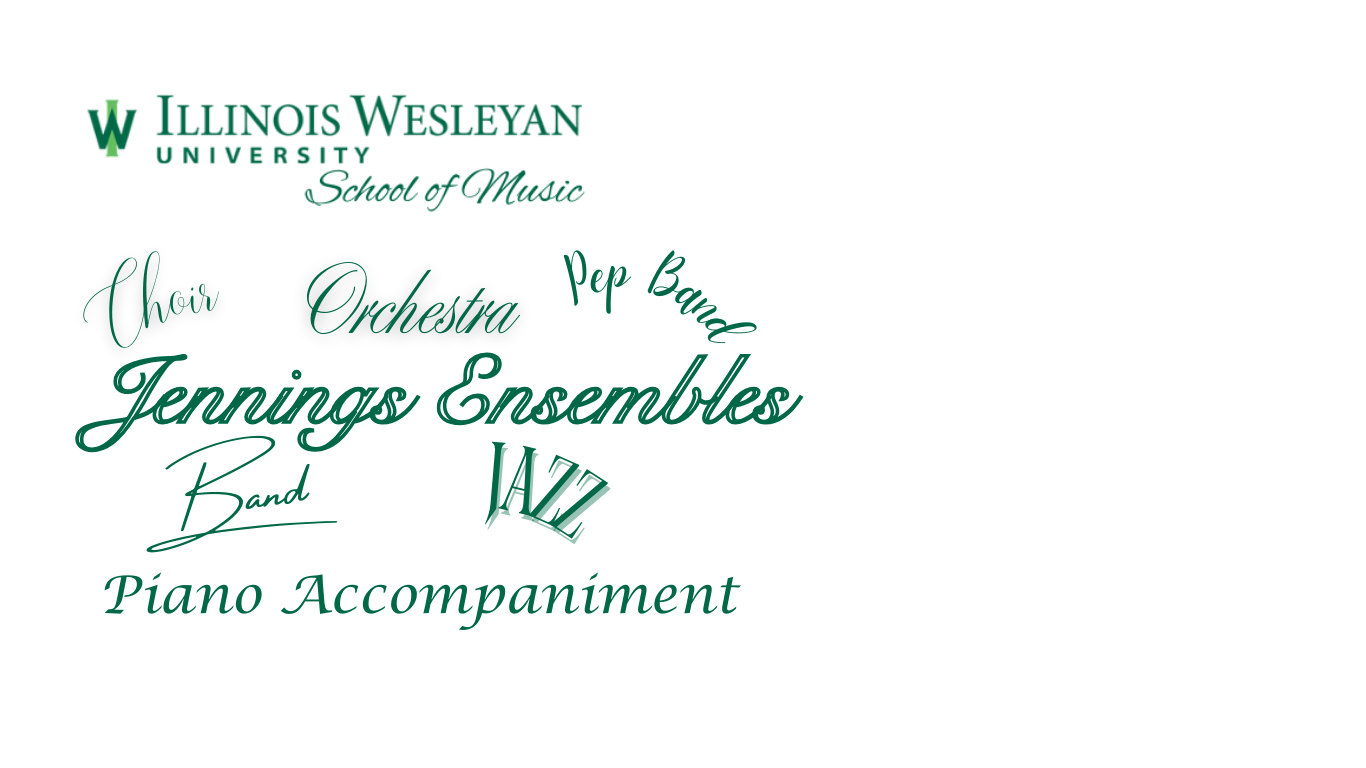Non-Music Major Auditions & Scholarships
Continue your love of music when you go to college! Regardless of your major, there's a place for you in Illinois Wesleyan University's School of Music. Prospective students who wish to continue singing or playing a musical instrument, but do not intend to be music majors, may audition for the Jennings Scholarship.

What is the Jennings Scholarship?
The Jennings Scholarship is a $1,000 music award designed specifically for non-music majors who wish to participate in an ensemble.
Audition deadline: Auditions must be submitted prior to April 1.
Ensemble placement: Jennings recipients audition for seating and ensemble placement during the first week of class as determined by the ensemble directors. Students are typically assigned to a major ensemble (Collegiate Choir, University Choir, Illinois Wesleyan Symphony Orchestra, Wind Ensemble, or Piano Accompaniment). After the first semester, students may participate in any approved ensemble to count as their required ensemble as long as they meet the requirements for that ensemble.
Ensembles that satisfy the Jennings requirements include: Collegiate Choir, University Choir, Illinois Wesleyan Symphony Orchestra, Wind Ensemble, String Chamber Music, Jazz Ensemble, Titan Band and Piano Accompaniment.
Exceptions: Music Theater vocalists are not eligible for a Jennings Scholarship.
How do I audition for a Jennings Scholarship?
- Apply to IWU. You can not upload a video until you have submitted your application.
- Review the audition requirements.
- Upload your audition video. Log in to your student status portal (this is where the checklist is located). Clicking the edit portfolio link at the bottom of the page, will take you to instructions for uploading your audition video. Don't worry if your video is sideways when you drop it in the upload section, it will appear in the proper orientation on our end.
- All Jennings auditions will be reviewed following the April 1 deadline. Award recipients will be notified no later than May 15.
Audition Requirements
To be considered for a Jennings Scholarship, please upload two solos of contrasting styles that best demonstrate your technical and musical strength. One of the two selections may be an etude or technical study. Please submit a minimum of one minute of each selection
Uploading your video audition
Once your video is completed, upload it to your Student Status Portal, and we’ll take it from there.
For more information about music auditions and scholarships, contact Fine Arts Admissions Coordinator Laura Dolan at ldolan@iwu.edu.
For more information on financial aid, contact the Admissions Office.